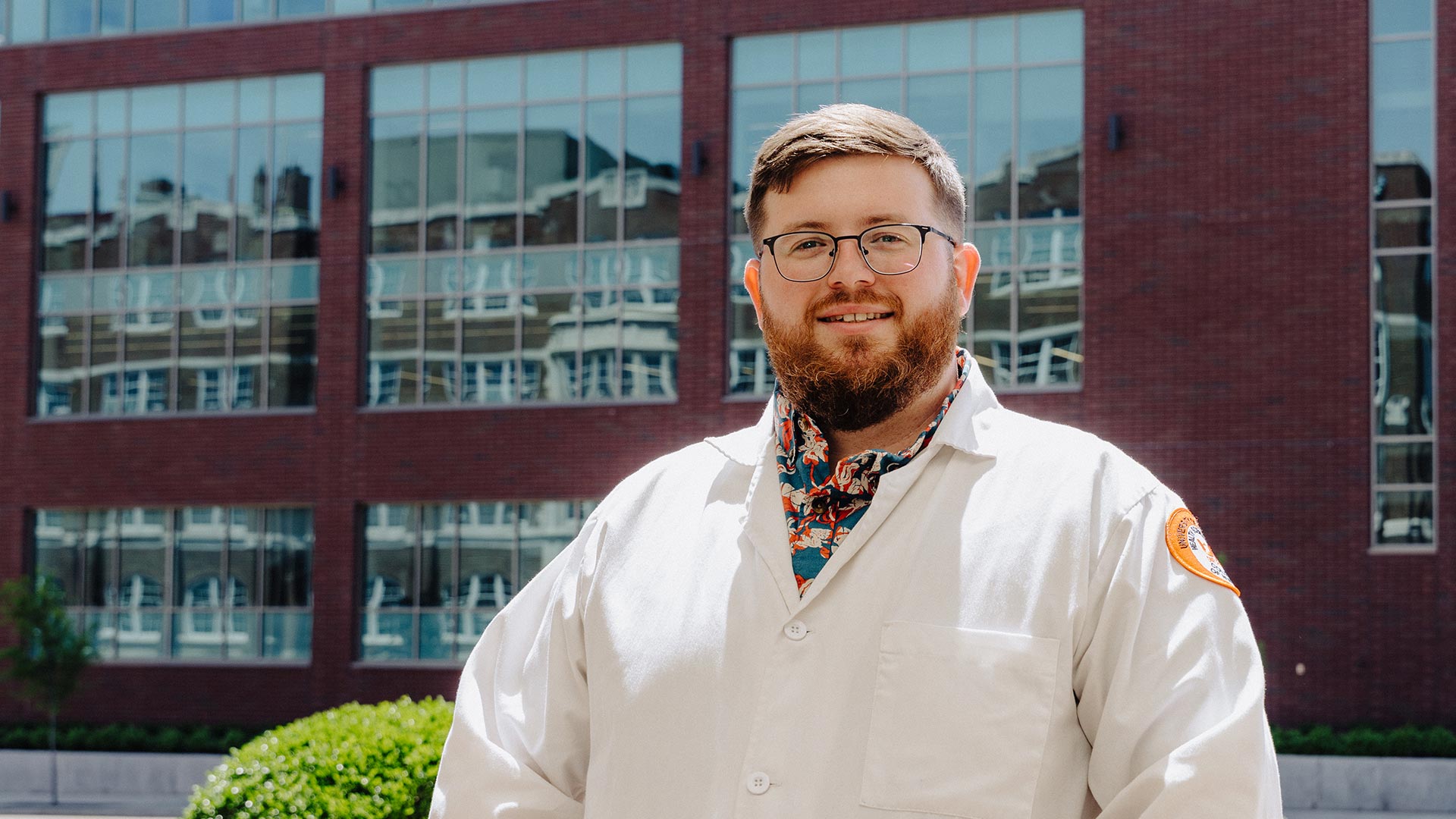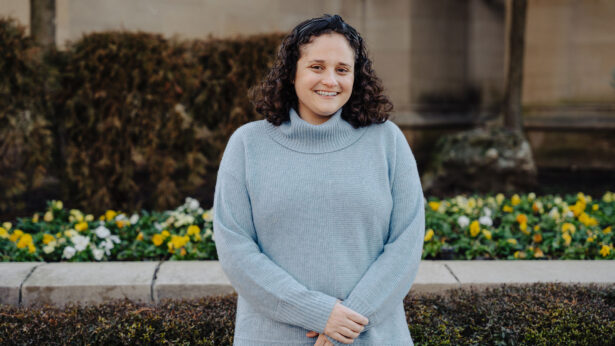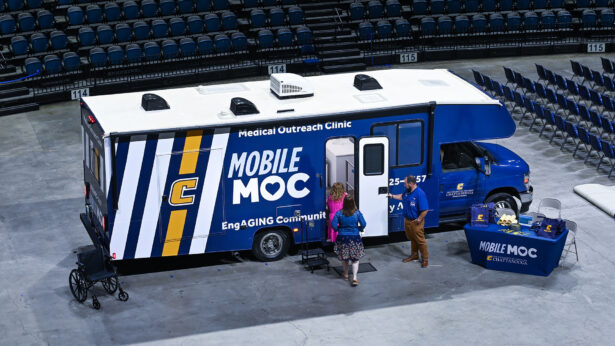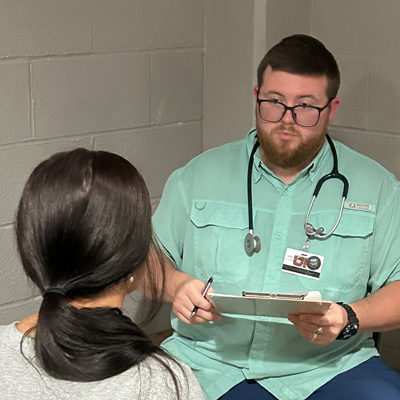
Logan McCulley’s journey to becoming a nurse practitioner began at 14 when the four-wheeler he was driving flipped and landed on his right leg.
That proved a turning point in the life of the Fayette County teenager.
“My granddad pulled the four-wheeler off me and spent an hour or two trying to get me into a Saturn in the middle of a field without calling the ambulance,” he says. When an ambulance was called, it transported McCulley to Le Bonheur Children’s Hospital in Memphis, where he learned that his right femur was broken into three pieces.
Surgeons placed a titanium rod on the inside of his femur, securing it with pins at the top and bottom. He could not put more than five pounds of weight on his leg for two weeks and then faced three months of excruciating physical therapy. He learned how to walk again, and it took 10 months for him to completely recover.
“That accident gave me a compassion for people who are disabled,” he says. “It gave me insight into what that was like that even helps today, to be quite honest.”
“I realized that accidents will happen, and I can either learn how to be ready for it or not.”
—Logan McCulley
The accident also made him consider the future more carefully. “At some point, I had the realization that I didn’t know on a Sunday afternoon that my life was going to change irreversibly,” he says. “I had no idea what to do in that (accident) scenario. I realized that accidents will happen, and I can either learn how to be ready for it or not.”
McCulley decided to become a paramedic. No one in his family had a four-year college degree, and the only professional pathways he remembers hearing about were the military, firefighter or police officer. He graduated from Gateway Christian Schools homeschool program at 17, earned an emergency medical technician license at 18 and became a licensed paramedic the following year.
His learning didn’t end there. In May, the 29-year-old graduated from UTHSC with his Doctor of Nursing Practice (DNP). Now the married father of two works as a certified nurse practitioner at MedCentris, a wound medicine company that partners with hospitals, physician practices, home health and hospice agencies. The DNP prepares nurse practitioners to conduct medical exams, diagnose and treat illnesses, and write prescriptions.
“I’m ready to rock ’n’ roll,” he says.
Doctoral Journey Began with Paramedic License
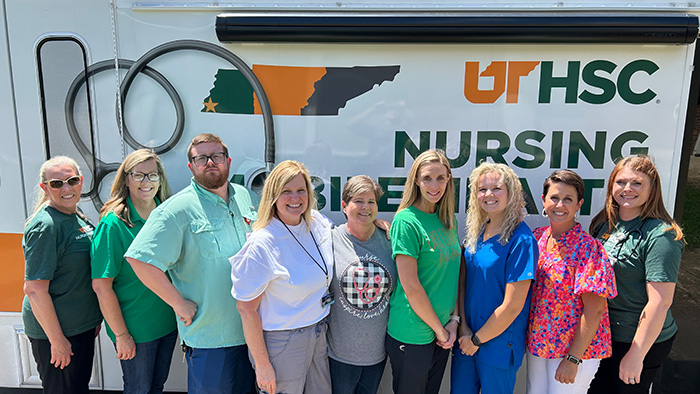
After becoming a paramedic, McCulley realized that he wanted additional training to take the best possible care of his patients. He went to work for Le Bonheur Children’s Hospital as a paramedic to learn more about pediatrics.
“When I was in the ER (at Le Bonheur) and saw all that nurses do—managing patients, doing training, creating policies and procedures—I decided I wanted to be part of that,” he says. “Your brush gets way bigger when you go to the nursing role.”
About the DNP Program
The Doctor of Nursing Practice (DNP) program at UT Health Science Center in Memphis offers nine concentrations and three dual concentrations. These include a DNP in nurse midwifery, nurse executive, neonatal nurse practitioner and more. It was the first DNP program established in Tennessee and the second established nationwide. U.S. News and World Report ranks it 14th among public universities in the U.S. Learn more at uthsc.edu/dnp.
McCulley applied to the Bachelor of Science in Nursing program at the University of Memphis. “Walking into nursing school for the first time, past the columns and down the stadium seating for 150 people, I felt way, way out of my element,” he says. He persisted, completing his degree while working full time as a paramedic and managing a second, part-time job on the side. His days lasted from 6 a.m. to 10 p.m.
After earning his BSN and working for a few years, McCulley again wanted to expand his influence as a health care provider. For his doctoral degree, he looked to UT Health Science Center.
Persistence Pays Off
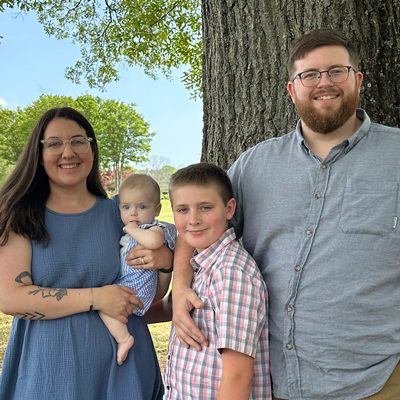
After his four-wheeler accident, a doctor told him he might not ever walk again. “I wanted to walk again,” McCulley says. “In fact, I wanted to go backpacking the next year.”
He went to Philmont Scout Ranch, Scouting America’s premier high-adventure base, where he and his troop trekked more than 68 miles in the wilderness of New Mexico—just one year after his leg had been in pieces. McCulley credits the encouragement and guidance of his father, Michael McCulley, during the early days after his accident for his successful recovery. His father died when McCulley was 22.
That same persistence—and grants—helped McCulley earn his degree. A Health Resources and Services Administration grant—for advanced practice nursing students committed to serving rural and underserved communities—paid his tuition for the third year of the three-year program. During his second year, he participated in the Rural Scholars program, which paid 50 percent of his tuition.
Associate Professor Laura Reed, director of special academic programs for the college, says McCulley has been an asset to the DNP program. “It has been a great honor to watch him grow into his role as an advanced practice registered nurse,” she says.
For two semesters, McCulley served his clinical hours at a primary care clinic in Lake County. He stayed in Dyersburg while working three to four days at the clinic.
“That was tough, being away from the family like that,” he says.
“The response you get in the community for being a UT Health Science Center graduate is worth making it a point to come to UT Health Science Center.”
—Logan McCulley
But he enjoyed the work because he saw the impact of rural health care providers. “The amount of help that you can give to people who live in these remote areas is just astounding,” he says. “A lot of these people didn’t have a car, so they would walk, ride their bike or take their electric wheelchair to the clinic. You could do bloodwork, order an ultrasound, drain an abscess. You could change their outcome.”
The most difficult aspect of the DNP program proved to be balancing family needs with work and school, especially after the birth of his son, Samuel, who spent a month in the neonatal intensive care unit. He credits his wife, Jennifer, for making it possible for him to continue to work and go to school during such a stressful time.
“Without her love and support, all of this would have fallen apart,” he says. He also cites their Christian faith as a source of strength and peace in facing challenges in school and life.
McCulley is proud to be a graduate of the UT Health Science Center DNP program, which is highly ranked and known for its rigorous standards.
“The response you get in the community for being a UT Health Science Center graduate is worth making it a point to come to UT Health Science Center,” he says.
